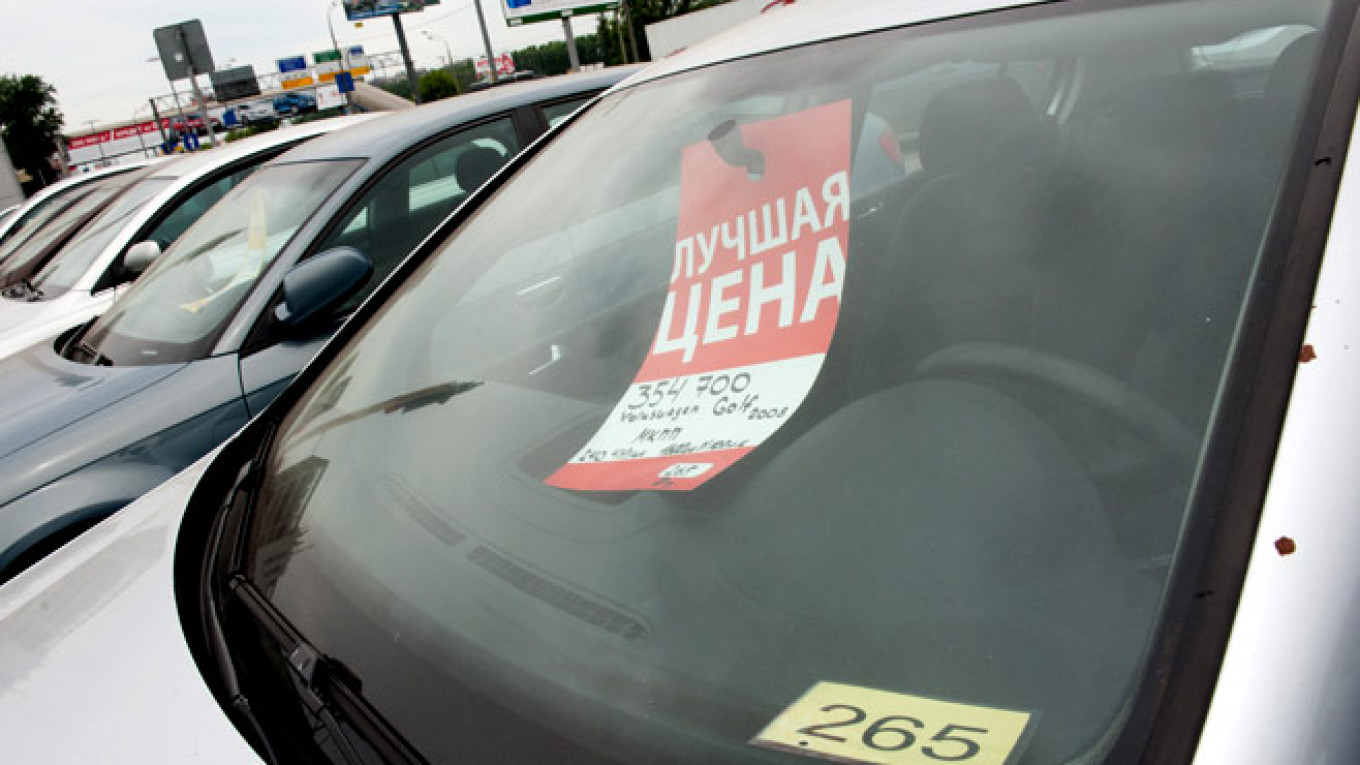Originally published by EurasiaNet.org.
Once a mega-multimillion-dollar hub for car buyers from across Eurasia, Georgia's famed used auto market is now running out of gas. Hit by sharp devaluations against the dollar and stricter import regulations, sales at the car bazaar are flagging.
"We wouldn't have been able to sit and talk like this, even a year ago. We would have been too busy," recollected one dealer at the market, located about 30 kilometers south of the Georgian capital, Tbilisi. "Now, we just sit here all day; even on Saturday and Sunday."
Sales began sliding in 2011, when Kazakhstan raised its duties on car imports by adopting the Russia-led Customs Union's tariffs. The next blow came just last year when Azerbaijan, Georgia's largest single trading partner, brought its vehicle emissions in line with more exacting Euro-4 standards, thus ending imports of American and European cars made before 2005, and Japanese cars made before 2010.
In February, the 33.5-percent devaluation of Azerbaijan's currency, the manat, against the dollar dealt an additional blow. Middle-class Azerbaijanis, a prime market for Georgia's re-exported cars, were hit hardest. Many have loans on their houses and cars in foreign currencies.
But it also hurt the used-car industry in Georgia, where purchases are made in U.S. dollars.
From January through August of this year, the South Caucasus country's used-car exports decreased by more than 66 percent compared with the same period in 2014, according to government data — a revenue loss of more than $238 million. Azerbaijan accounts for 55 percent of that total.
Georgia's exports of used cars to Azerbaijan sagged from north of $182 million in the first eight months of 2014 to roughly $51.2 million for the same timeframe in 2015. "The rich in Azerbaijan … just buy their cars in the center of Baku, but the cars here are too expensive for middle-class people in Azerbaijan now," commented Mamuka, a car dealer at the Rustavi bazaar. "It's cheaper for them to buy cars that are already in Azerbaijan."
Vugar Bayramov, chair of the Center for Economic and Social Development, an Azerbaijani economic think tank, agreed. Prices for older used cars in Azerbaijan have fallen by 7 percent since April 2014, when the Euro-4 standards went into effect, he estimated. Supply now outstrips demand, he added.
Georgia's southwestern neighbor, Armenia, might have seemed a potential fallback market, but the country's entrance into the Russia-led Eurasian Economic Union this past January led to a 50-percent increase in duties on imported cars. Preliminary figures from the official Georgian data agency, GeoStat, show a 36-percent decrease in exports to Armenia during the first eight months of this year.
Used cars accounted for 18 percent of Georgia's total 2014 exports of nearly $2.9 billion. Although the drop in auto re-exports this year is sure to have a considerable economic effect on the Georgian economy, the issue of lagging sales seems not to have appeared yet on the government's radar.
With only sparse smatterings of customers now browsing the Rustavi market, which is operating at about a third of its several-thousand-car capacity, the Tbilisi-based conglomerate, AutoPapa, that owns the bazaar was put up for auction this July. The minimum asking price of $30 million failed to attract a bid, an AutoPapa manager, who asked not to be identified, told EurasiaNet.org
Georgia's own used-car market can do little to improve matters. Though the country's per capita Gross Domestic Product of $3,670 and unemployment rate of 14.6 percent have improved moderately over the last year, the Georgian lari has lost nearly 45 percent of its value against the US dollar since 2013.
Mamuka, the dealer, said that months can go by when he does not sell a single car, compared with "10 cars in a good month" previously.
"There's been nothing for seven months now," said Aslan, another Rustavi-bazaar salesperson.
These small business owners, predominantly men who work on their own or for dealerships, have nearly ceased restocking their inventory, and say they are left with tens of thousands of dollars in unsold cars.
Those who continue to work often only do so to minimize losses. "Many people are leaving," Mamuka said. "Some people have opportunities in different places. I have a sister in Philadelphia, so I might go there."
Originally published by EurasiaNet.org.
A Message from The Moscow Times:
Dear readers,
We are facing unprecedented challenges. Russia's Prosecutor General's Office has designated The Moscow Times as an "undesirable" organization, criminalizing our work and putting our staff at risk of prosecution. This follows our earlier unjust labeling as a "foreign agent."
These actions are direct attempts to silence independent journalism in Russia. The authorities claim our work "discredits the decisions of the Russian leadership." We see things differently: we strive to provide accurate, unbiased reporting on Russia.
We, the journalists of The Moscow Times, refuse to be silenced. But to continue our work, we need your help.
Your support, no matter how small, makes a world of difference. If you can, please support us monthly starting from just $2. It's quick to set up, and every contribution makes a significant impact.
By supporting The Moscow Times, you're defending open, independent journalism in the face of repression. Thank you for standing with us.
Remind me later.






